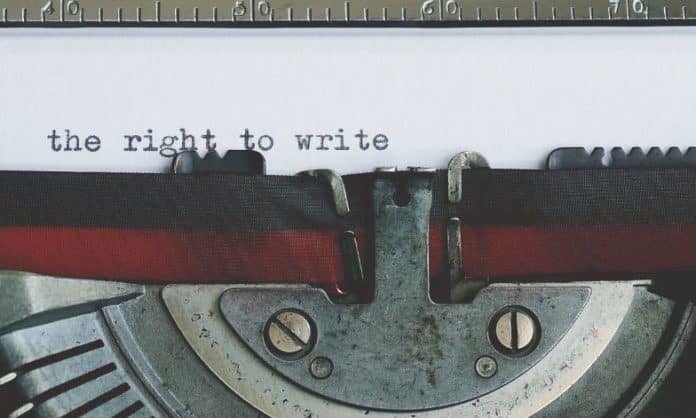The climate and biodiversity crises have far-reaching effects, not only on the environment and ecosystems but also on billions of people around the world whose stories of upheaval and loss deserve to be told. Just like with any crisis, journalists must act as storytellers and expose what is happening, ‘working on the frontlines of our collective fight for the health of our planet and our struggle for livable lives.’ This year’s World Press Freedom Day and the 31st World Press Freedom Day Conference will be dedicated to journalists telling these decisive stories and the importance of journalism and freedom of expression in the current global environmental crisis.
‘On this World Press Freedom Day, I would like to highlight that media can play an essential role in raising awareness about the climate emergency and its impact,’ said Michael Haddad, UNDP Arab States Goodwill Ambassador for Climate Action on the occasion.
Environmental journalism under siege
Journalists and other media workers are vital in informing about the climate crisis, loss of biodiversity, and environmental justice. Their work informs people of the dangers these issues pose and the threat to our planet. It also mobilizes and empowers everyone to ‘take action for change.’ Environmental reporting ensures accountability so that environmental vandalism does not go unpunished, but it has also become an increasingly dangerous profession.
Dozens of journalists reporting on illegal mining, logging, poaching, and other environmental issues have been killed in recent decades with impunity. According to the UN Educational, Scientific, Cultural Organization (UNESCO), in the past 15 years, there have been around 750 attacks on environmental journalists and news organizations reporting on environmental issues, with the frequency of these attacks rising.
According to the IPI, one of the key risk factors for environmental journalists is having to travel to remote parts of the world where there is a lack of police protection and respect for the rule of law. Other risk factors outlined in the report include:
- Journalists having to become first responders after natural disasters.
- Hostility against climate and environmental activists.
- Lack of access to information from public institutions as well as private companies.
Dis- and misinformation surrounding the climate crisis
Just as with the COVID-19 pandemic and conflicts and crises worldwide, disinformation and misinformation campaigns challenge knowledge and scientific research on climate change, biodiversity loss and air pollution, fostering doubt and disbelief. Misleading and false information can affect how people view environmental issues, their impact and urgency, and weaken efforts by the international community to address them. Attacks on science, questioning its validity, can severely threaten a ‘pluralistic and informed public debate.’
In the context of the ‘triple planetary crisis’, dis- and misinformation can cause a lack of trust and political support for climate action, effective policies, and the protection of vulnerable communities affected by climate change. In particular, this affects women and girls as climate change can exacerbate pre-existing inequalities.
Environmental journalism – also a European issue
Contrary to what one may think, journalists and media workers reporting on environmental and climate issues in the European region have been subjected to threats and even detained by the police.
The most common form of attack on environmental journalists in Europe is legal harassment, in particular the use of SLAPPs (Strategic Lawsuit Against Public Participation). These lawsuits intend to censor, intimidate, and silence critics by burdening them with the cost of a legal defense until they abandon their criticism or opposition. In Brittany, journalists reporting on the human and environmental impact of agriculture faced a range of attacks, including ‘SLAPP suits, financial retaliation, death threats, harassments and physical attacks.’
According to a Council of Europe report, some progress and measures have been taken to prevent and end impunity. These include adopting the European Media Freedom Act and the EU anti-SLAPP Directive, as well as the Council of Europe’s Journalists Matter campaign and anti-SLAPP recommendations. Still, journalists and media workers continue to risk their lives ‘trying to bring us news on everything from war to democracy.’ As UN Secretary-General António Guterres says in his World Press Freedom Day message, ‘a free press is not a choice, but a necessity.’

